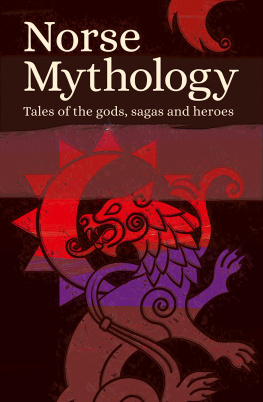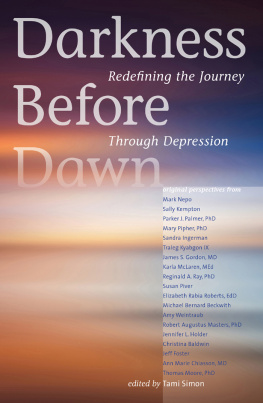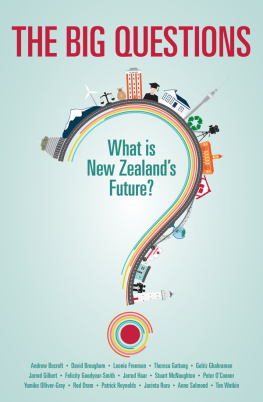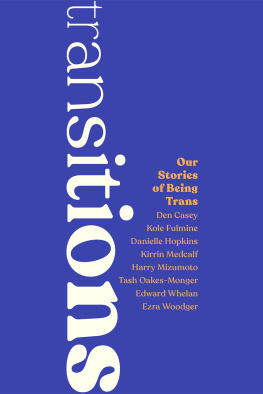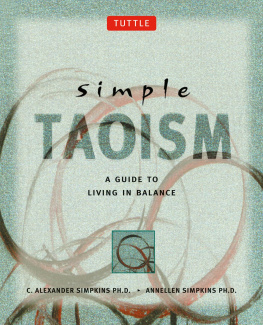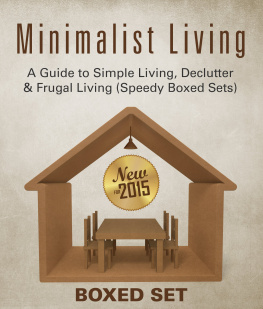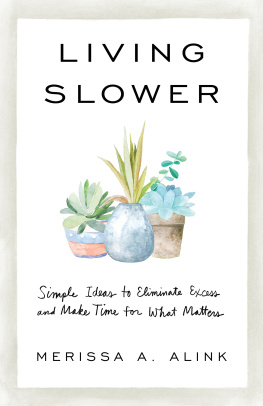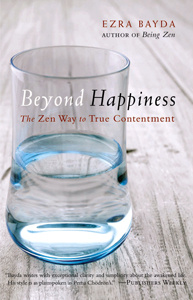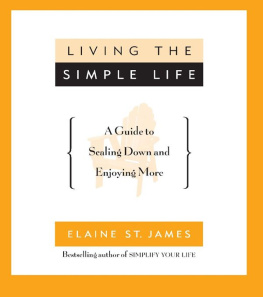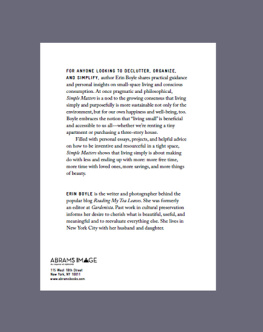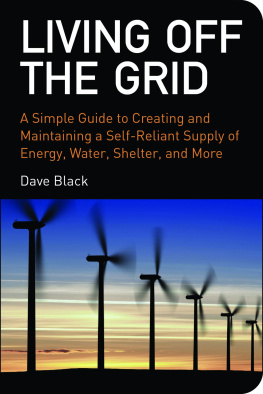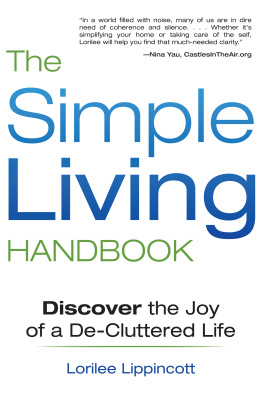
SIMPLE LIVING IN HISTORY: PIONEERS OF THE DEEP FUTURE
Published by the Simplicity Institute, Melbourne, 2014
www.simplicityinstitute.org
Copyright 2014 Samuel Alexander and Amanda McLeod
Copyright for individual chapters reside with the respective authors
All rights reserved
Cover design by Andrew Doodson 2014
ISBN-13: 978-0-9875884-9-4
ISBN-13: 978-0-9942828-5-9 (e-book)
No part of this work may be reproduced, recorded, or transmitted in any form, whether in print or electronically, without the express written permission of the copyright owner.
This book highlights the continuous cultural lineage that underpins current activism for an ecologically viable and spiritually nourishing life now and in the future. For permaculture practitioners and activists focused on building ecologically smart, localised economies, this book highlights how rethinking our attitudes and behaviour toward consumption can be a fruitful pathway to social and ecological harmony.
David Holmgren, Permaculture: Principles and Pathways beyond Sustainability
Simple Living in History challenges the mentality of waste and extravagance that defines modern industrial lifestyles, reminding us that the answers we need have been here all along, waiting for us to notice them.
John Michael Greer, The Wealth of Nature and Green Wizardry
This engaging book raises one of the key questions of our times, presenting a rich tapestry of perspectives on what it means to live simply.
Rob Hopkins, The Transition Handbook: From Oil Dependency to Local Resilience
CONTENTS
by David Shi
Peter Doran
William Desmond
Jerome Segal
Michael Augustin
Dirk Baltzly
Simon Ussher
William Fahey
Mark Burch
Steven Nolt
Samuel Alexander
David Craig
Sara Wills
Whitney Sanford
William Fahey
Allan Carlson
Amanda McLeod
Marius de Geus
Amanda McLeod
Mary Grigsby
Shannon Hayes
Bill Metcalf
Albert Bates
Samuel Alexander and Esther Alloun
Serge Latouche
Ted Trainer
Mark Burch
Lately in the wreck of a Californian ship, one of the passengers fastened a belt about him with 200 pounds of gold in it with which he was found afterwards at the bottom. Now, as he was sinking, had he the gold? Or had the gold him?
John Ruskin
ACKNOWLEDGEMENTS
We owe a debt of gratitude to all those who helped bring this project to fruition. First and foremost, we would like to thank the contributors for their time, efforts, and expertise. This book would not exist but for their generosity.
The chapter by Serge Latouche in this volume was submitted in French. We would like to thank Esther Alloun, Guillaume Dutilleux, Sandy Taddeo, and Michael Singleton for translating the article for us. Their time was very much appreciated.
We would also like to acknowledge the fine work of our cover designer, Andrew Doodson, who also designed the cover for Entropia. Once again, he achieved all that was asked of him and more. A picture is worth a thousand words.
None of the chapters in this volume have been published before, except for chapter seventeen, by Marius de Geus, and chapter twenty, by Shannon Hayes. A version of chapter seventeen was published in the Belgian journal, Oikos (51, 2009: 54-65), and a version of chapter twenty was published in Yes! Magazine (February, 2010). We appreciate the opportunity to reprint.
PREFACE BY THE EDITORS
SAMUEL ALEXANDER AND AMANDA MCLEOD
This book is framed by the realisation that consumerism that is, the high consumption way of life which defines the most developed industrial societies has no future. Consumer lifestyles have no future because our planet simply cannot sustain the weight of their energy and resource intensive burdens. Earths ecosystems are trembling under the weight of one or two billion high-end consumers, so it is nothing short of delusional to think that our planet could sustain four or six or eight or ten billion people living this way. There are limits to what Earth will tolerate.
And yet, it is precisely the fantasy of universal affluence that shapes national and international conceptions of progress and development. Across the ideological spectrum it is assumed that with sustained economic growth the poorest people on the planet can attain the consumerist ideal, while at the same time it is assumed that the richest people can continue to achieve ever-higher levels of affluence. We are continually told that technology and free markets will solve the grave ecological problems caused by this mode of development, all the while our old growth forests disappear, the oceans are emptied, the topsoils erode, our rivers are polluted, the holocaust of biodiversity continues, and the climate is destabilised. As the consumer class expands, we see the face of Gaia vanishing.
While the ecological impacts of the consumerist way of life are severe, the social justice implications are equally challenging. In order to support the high consumption lifestyles enjoyed by a minority of humankind, the global economy must be structured so as to siphon resources away from the developing world, where the majority of humankind live. While it can be acknowledged that development has indeed lifted millions out of extreme poverty, people are being forced off the land into the wage slavery of factory life, in order to make consumer trinkets which are then shipped off to the rich world, only for those trinkets to be promptly disposed of, creating mountains of consumer waste that are sometimes shipped back to the developing world for dumping. The issues are more complex and nuanced than this, of course, but the point is that beneath the nice-sounding political rhetoric calling for justice and sustainability lies a form of development that is too often oppressive and degrading, and which insidiously promotes narrow and unimaginative conceptions of the good life. We are told that in time sustainable development will enrich the poorest people and nations, all the while economic inequality worsens, the rich get richer, and the destitute, by in large, remain impoverished. We are told to wait for progress, as if in a Kafkaesque novel, but we are not told how long we must wait.
If the social justice and ecological implications of consumerism are disturbing, what is perhaps most unsettling of all is the fact that even those who have attained the consumerist ideal often do not seem satisfied with it. The social and ecological costs are tragic, and yet the promised benefits are constantly deferred. As we get caught up in the stressful work-and-spend cycle of a growth-orientated world, too often our communities and families fragment into a materially rich but culturally poor society of isolated and alienated individuals individuals who seek contentment in nice things, but who do not find it. It seems the treadmill of consumption is failing to live up to its promise of a fulfilling life, failing to satisfy the universal human craving for meaning, and yet our televisions and newspapers bombard us with the message that more consumption is the only solution to our malaise. When we get that new kitchen, and replace the carpet; when we upgrade the car or house and purchase that new watch or dress then we will be happy; then our peers will respect us; then we will be loved. So do not question the status quo; fall quietly in line; and be grateful for a life of comfortable unfreedom.



